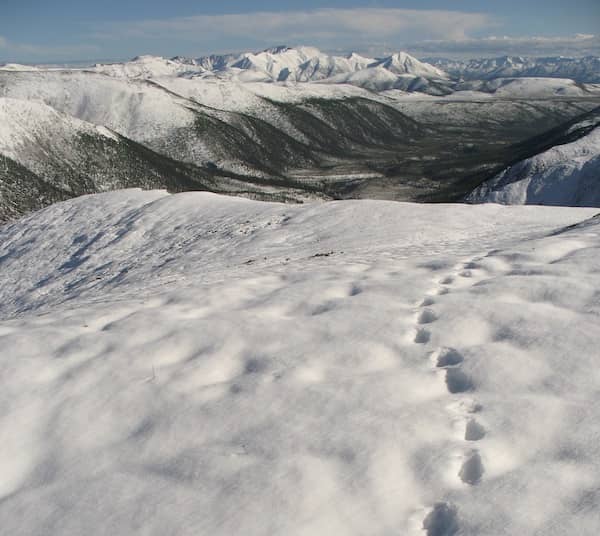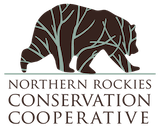
The Mongolian Wolverine Project
Research Associate: Rebecca Watters
Project overview: The Mongolian Wolverine Project works with Mongolian communities to protect climate sensitive wildlife, landscapes, and culture.
Backstory: NRCC Research Associate Rebecca Watters has worked in Mongolia for more than 20 years. Her work uses the wolverine to study the impact of climate change on sensitive species and serves as a model for novel conservation approaches that focus on co-creation with local communities. Since 2009, Rebecca has been working with those communities in northern Mongolia to conserve not only Mongolia’s wildlife, but the complex set of relationships that humans, wildlife, and landscape maintain.
Rebecca says, “Mongolia has a human population that has been living with, observing, and protecting their wildlife over thousands of years. A large part of that population continues to herd livestock through wolverine habitat to this day. My initial efforts focused on simply talking to people, using a blind interview technique that allowed them to identify wildlife species in the area without knowing which one I was looking for… I didn’t, however, want to be one of those obnoxious Americans who shows up in a place, does some research, and claims a bunch of “discoveries” for herself, so from the outset I viewed the work as collaborative and reciprocal. I kept in trust the particulars of cultural stories and practices that belong to Mongolians, shared the basic scientific data on distribution, and saw the project as a long-term investment in building research and conservation capacity with interested communities.”
The project’s three main goals are to:
- Establish baseline information and longer-term monitoring and conservation plans for little-known Mongolian species that might be experiencing climate change effects
- Build capacity among Mongolian environmental professionals, students, Buddhist monasteries, and local communities to monitor environmental change and enhance participation in environmental decision-making
- Create a global network of researchers working on similar species and issues in similar ecosystems
Current Status: All project work has been suspended through the end of 2021 due to the pandemic. Program work will resume in summer of 2022.
Learn more by visiting https://egulo.wordpress.com/ – The Wolverine Blog.
Project Partners: The Wolverine Foundation
Project start year: 2009
Location: Mongolia
